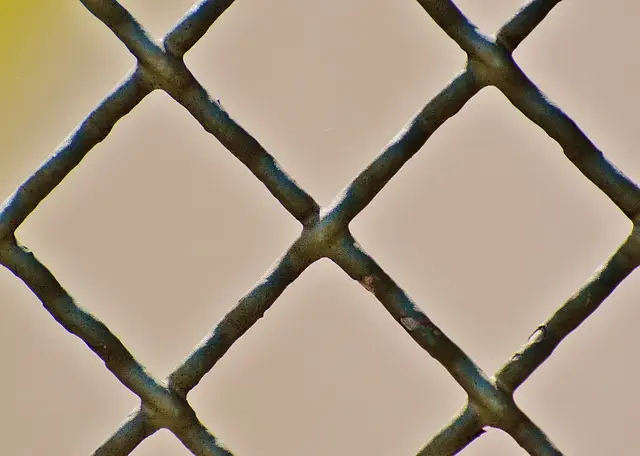Green Vein Kratom, with its alkaloids like mitragynine and 7-hydroxymitragynine, has garnered attention for its potential impact on hair health and regrowth. Some users report positive effects on hair loss, though these experiences vary widely. Early research suggests certain compounds in the extract might influence the hair growth cycle positively, but the scientific community is still investigating how Kratom affects this process. The mechanisms are not yet fully understood, and while compounds such as mitraphylline's anti-inflammatory properties offer theoretical benefits for reducing scalp inflammation and promoting healthier hair growth, more comprehensive research is needed to confirm these effects. It's crucial to consult medical professionals before using Kratom for hair loss concerns, as it is not a substitute for conventional treatments like those for androgenetic alopecia. The potential for hair lost due to kratom use to regrow is dependent on various factors, including individual health and the duration of Kratom consumption. The relationship between Kratom's active components and human physiology in terms of hair growth is an area that requires further scientific exploration. Those who have experienced hair loss while using Green Vein Kratom should seek professional healthcare advice to explore treatment options for hair regrowth, focusing on addressing the underlying causes of hair loss associated with Kratom use.
Green Vein Kratom has emerged as a subject of intrigue, particularly among those seeking natural remedies for hair health and regrowth. This article delves into the potential effects of Green Vein Kratom Extract on hair vitality, shedding light on its active alkaloids and their possible role in mitigating hair loss. Through scientific exploration and personal anecdotes, we aim to uncover whether hair lost due to Kratom use can indeed regrow, offering a comprehensive look at this botanical’s impact on our hair’s well-being. Join us as we navigate the complexities of Green Vein Kratom and its relationship with hair health.
- Unraveling the Impact of Green Vein Kratom Extract on Hair Health and Regrowth
- Comprehending Green Vein Kratom's Active Alkaloids and Their Role in Hair Loss Prevention
- Navigating Personal Experiences with Green Vein Kratom: Does Hair Loss from Kratom Grow Back?
Unraveling the Impact of Green Vein Kratom Extract on Hair Health and Regrowth

Green Vein Kratom Extract has garnered attention for its diverse pharmacological properties, and one area of interest is its potential impact on hair health and regrowth. Kratom, a plant from Southeast Asia with mitragynine and 7-hydroxymitragynine as its primary alkaloids, has been traditionally used to enhance well-being and energy levels. Recent anecdotal evidence and preliminary studies suggest that certain compounds in Green Vein Kratom may influence hair health. Alkaloids present in the extract could potentially affect the hair growth cycle by promoting conditions conducive to healthy hair maintenance or regrowth.
The relationship between Kratom use and hair loss is complex, with individual experiences varying widely. Some users report that their hair loss, possibly attributed to stress or hormonal imbalances, has slowed or even reversed after incorporating Green Vein Kratom Extract into their regimen. However, it’s crucial to approach these claims with caution; while the alkaloids may offer supportive benefits, they are not a verified cure for hair loss conditions like androgenetic alopecia. The scientific community is still exploring the mechanisms by which Green Vein Kratom might influence hair growth, and more rigorous research is needed to confirm its effects. Users considering Kratom as an aid in hair regrowth should consult with healthcare professionals to understand the potential risks and benefits, and to ensure that any treatment is part of a comprehensive approach to addressing hair loss.
Comprehending Green Vein Kratom's Active Alkaloids and Their Role in Hair Loss Prevention

Green Vein Kratom, derived from the Mitragyna speciosa plant, contains a unique blend of active alkaloids that may play a role in various physiological processes, including hair health. The primary alkaloids present in this strain are mitraphylline and 7-hydroxymitragynine, which have been studied for their potential effects on the body. Mitraphylline, in particular, exhibits anti-inflammatory properties that could theoretically mitigate scalp inflammation, a common contributor to hair loss. Additionally, there is speculation that the alkaloids found in Green Vein Kratom might interact with hair follicles in a way that promotes healthier hair growth. However, it’s important to approach such claims with caution, as scientific research on this topic is still emerging. Preliminary studies suggest that certain compounds within kratom may stimulate the follicles and enhance the hair growth phase, potentially aiding in the recovery of hair loss caused by various factors, including those related to stress and hormonal imbalances. Nonetheless, individuals concerned with hair loss should consult healthcare professionals before considering Kratom as a treatment option, as the long-term effects of Kratom use are not fully understood and may pose risks to overall health. The question of whether hair lost due to kratom use can regrow is complex and influenced by various factors including the individual’s health, the duration and amount of kratom consumption, and the underlying cause of hair loss. Understanding the interplay between Kratom’s active alkaloids and human physiology is an area of ongoing research, with promising signs but inconclusive results as of now.
Navigating Personal Experiences with Green Vein Kratom: Does Hair Loss from Kratom Grow Back?

Navigating personal experiences with Green Vein Kratom can be a nuanced journey, as individual responses to this mitragyn Speciosa extract vary widely. Reports from users who have experienced hair loss while taking Green Vein Kratom raise concerns about the reversibility of such side effects. It’s known that hair loss, medically termed alopecia, can occur due to various factors, including physiological stress and changes in hormone levels, both of which can be influenced by substance intake. For those who have discontinued Kratom use and are concerned about the regrowth of hair lost during its consumption, understanding the hair growth cycle is crucial. The anagen phase, catagen phase, and telogen phase dictate the health and life stages of hair follicles. If hair loss from Kratom is hormonally driven or due to the substance’s impact on the body’s stress response, resumption of a balanced hormonal environment post-cessation may allow for hair growth to resume over time. It’s important for individuals to consult with healthcare professionals if they experience significant hair loss while using Green Vein Kratom. A healthcare provider can offer guidance and testing to determine the underlying cause and recommend appropriate measures to promote hair regrowth, whether related to Kratom use or other factors.
Green Vein Kratom Extract has garnered attention for its potential impact on hair health and regrowth. This article has delved into how this natural substance, rich in active alkaloids, may offer a promising avenue for those experiencing hair loss. Personal experiences shared by individuals provide insight into the possibility of hair regaining its vigor after exposure to Kratom. While further research is merited to fully understand the mechanisms at play, the preliminary findings suggest that with proper usage and understanding of its properties, Green Vein Kratom might hold a key role in supporting healthy hair growth. As such, it emerges as a topic of considerable interest for those exploring alternatives in hair health restoration.






